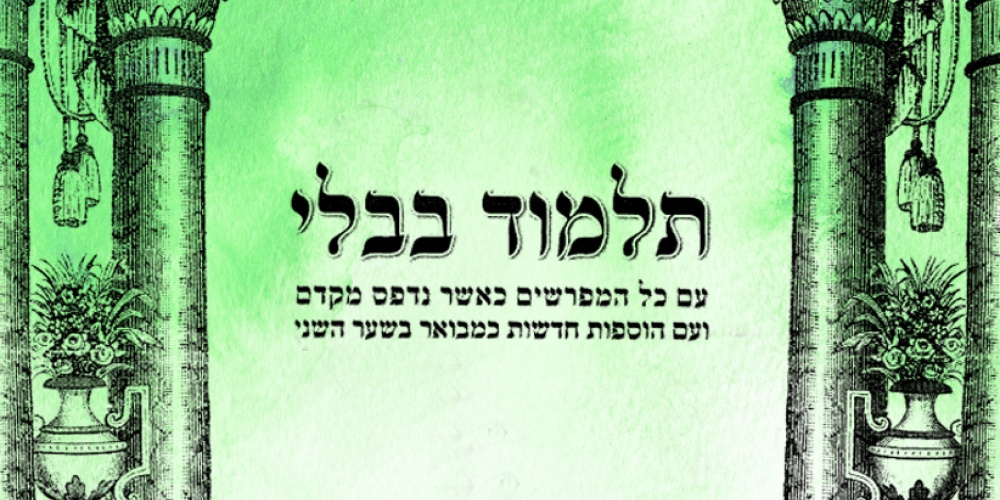
Being pregnant with one’s first child is the best of times. One imagines a talmid chacham, a nuclear physicist, a Nobel laureate, an Olympic athlete and a great philanthropist all wrapped in one. It is only when one gives birth and begins to raise a child that one realizes that is not exactly how it works out.
It is not only the expectations of the parents that change with birth. The baby, too, undergoes a great awakening.
“Rav Simlai expounded: What does an embryo resemble when it is in the womb of its mother?" (Nidah 30b). In the days before ultrasound, it is doubtful the rabbis were asking what an embryo literally looked like. They did not and could not know. Rather, they were enquiring as to the life lessons we can learn from the development of the fetus.
Rav Simlai begins by noting that a fetus looks “like a pinkas mekufal, a folded notebook”. A notebook is where one interprets and summarizes what one has learned. Each person has a different style for taking notes and two people can hear the same information but understand it differently. Most importantly, a notebook allows one to go back and review and refresh one's memories of the material covered. But a folded notebook serves no purpose. Unless opened and reviewed, the information contained therein will be of little value. The fetus as a fetus has little purpose, much like a folded notebook. But as the fetus grows and matures, it opens its notebook and records that which it has learned. And if it keeps that notebook open and reviews it, the fetus will grow not only physically, but spiritually as well.
“And it rests with its hands on its two sides. Its head lies between its knees, its mouth is closed and its navel is open, and it eats what its mother eats and drinks what its mother drinks, but produces no excrements because otherwise, it might kill its mother”.
The fetus need not worry about the necessities of life as they are provided for by its mother through no effort of its own. Even before we are born, we are to be in awe of our parents who give us life, and grateful for all they do, providing the necessities of life long after we enter the world.
In utero is also the time for rest and relaxation. But as G-d scolded Yaakov Avinu (see Rashi, Breisheet 37:2), who sought to live out his life in peace and quiet, once we enter this world, taking it easy will have to wait until we arrive at the next world. During our sojourn on earth, there is just too much to do. No longer an extension of our mothers, we must be ready to work hard and make our own unique contribution to the world.
“As soon as it sees the light, the closed organ opens and the open one closes, for if that had not happened, the embryo could not live even one single hour.”
We must express gratitude for all our blessings, first and foremost, our health. One of the most beautiful brachot we have—and we can clearly see its origins here—is that of asher yatzar, where we have an opportunity many times a day to thank G-d that we can go to the washroom. G-d forbid if we cannot! By expressing such gratitude throughout the day for something so natural (we hope), we develop this most important trait, applicable pretty much 24/7.
“A light burns above its head and it looks and sees from one end of the world to the other. And do not be astonished at this, for a person sleeping here might see a dream in Spain.”
As per our opening vignette, we all have great potential. No matter how limited our talents, we can all make a difference. All can fulfill the first command of the Torah, that of “conquering the world[1]” in our own special way—“from one end of the world to the other”. We just need to broaden our vision.
“And there are no days when a person is in a more blissful state than those days”.
Life is so easy in the womb; all our needs are taken care of as one is cuddled by one's mother. “It would have been more comfortable for man had he not been created[2]” (Eiruvin 13b). But it is a meaningful, not an easy, comfortable, or blissful life, that matters most.
“And we teach him the entire Torah…and when the fetus emerges into the airspace of the world, an angel comes and slaps it on its mouth, causing it to forget the entire Torah.” Torah is part and parcel of our nature. And while we may have to put in great effort to re-learn it—of what use is something that comes with no effort?—we are actually relearning what we once knew. We are opening up our folded notebook, the one we forgot we even had.
[1] We are accustomed to saying that the first mitzvah of the Torah is pru u’revu, to have children. However, that is only part of the mitzvah. This mitzvah concludes with the obligation to conquer the earth. While not all are capable of having children, all can make this world a better place.
[2] Many misunderstand this Gemara to be saying that it would have been better had man not been created. A most sobering thought. However, it does not say tov lo, it would have been good had man not been created, but noach lo, it would have been more comfortable and restful for us had we not been created. If G-d saw over and over that “it is good”, how can one think that being created is not good? Life is not always comfortable, but by living a meaningful life, it is definitely good that we were created.



